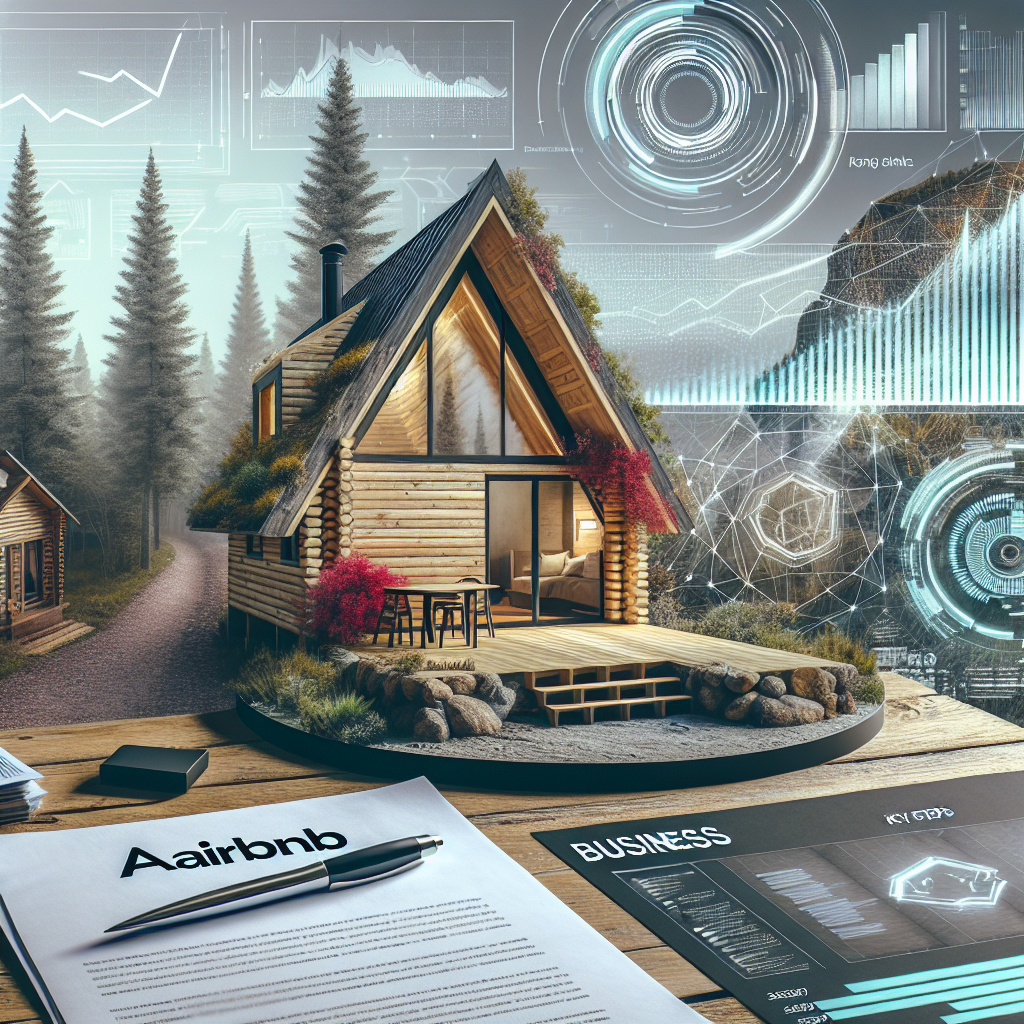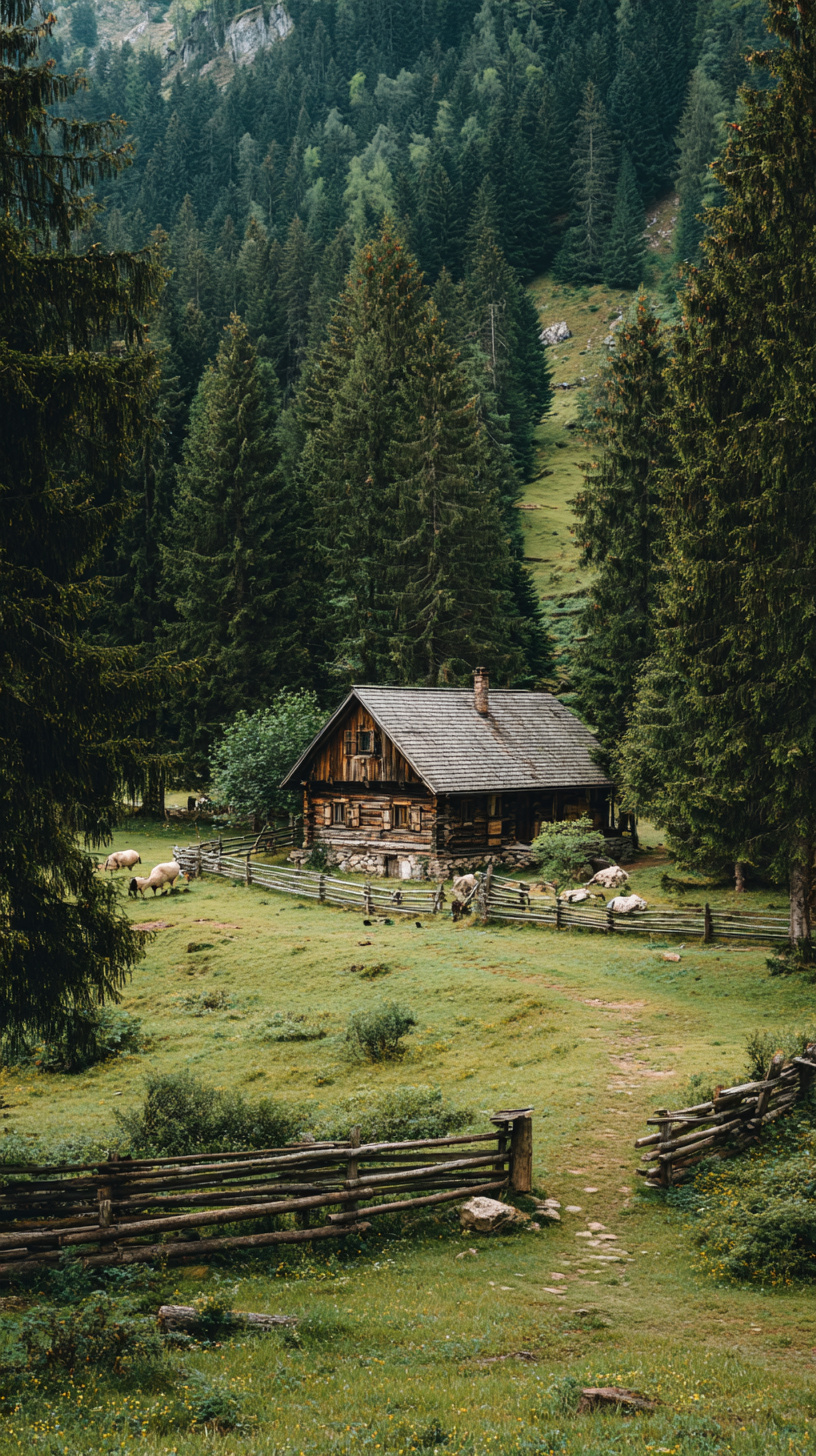How to Start an Airbnb Cabin Business From Scratch (2025 Guide)
The allure of a cozy cabin nestled in the woods, mountains, or by a serene lake is undeniable. For many, it represents an escape from the hustle and bustle of everyday life. This growing desire for authentic, nature-based experiences makes starting an Airbnb cabin business a potentially lucrative venture in 2025. However, success requires careful planning, diligent execution, and a commitment to providing exceptional guest experiences. This comprehensive guide will walk you through the essential steps to launch your Airbnb cabin business from scratch, ensuring you’re well-prepared to thrive in the competitive vacation rental market.
1. Market Research and Niche Definition: Identifying Your Ideal Cabin Guest
Before you even think about purchasing or building a cabin, you need to understand the market. This involves identifying your target audience and determining the demand for cabin rentals in your chosen location.
- Location, Location, Location: Research areas with strong tourism appeal, outdoor activities (hiking, fishing, skiing, etc.), and accessibility from major cities. Look at existing Airbnb listings in those areas. Are they consistently booked? What are their average nightly rates? Tools like AirDNA can provide detailed insights into local Airbnb market performance.
- Target Audience: Who are you trying to attract? Families, couples, solo travelers, adventure seekers, or remote workers? Define their needs, preferences, and budget. This will inform your cabin design, amenities, and marketing strategy. For example, a cabin geared towards families might require multiple bedrooms, a fully equipped kitchen, and kid-friendly games.
- Niche Down for Success: Consider specializing in a particular niche to stand out from the competition. This could be a pet-friendly cabin, a luxury romantic retreat, a tech-equipped “workation” cabin, or a cabin focused on specific activities like fly fishing or bird watching. A well-defined niche allows you to tailor your offerings and marketing to a specific audience, increasing your chances of attracting bookings.
2. Financial Planning and Securing Funding: Turning Your Dream into Reality
Starting any business requires capital. Create a detailed business plan that outlines your projected expenses and revenues. This will be crucial for securing funding and managing your finances effectively.
- Detailed Budget: Factor in all costs, including land acquisition (if applicable), construction or renovation, permits, furniture, appliances, insurance, property taxes, marketing expenses, cleaning supplies, and ongoing maintenance. Don’t forget to allocate a budget for unexpected repairs or emergencies.
- Pricing Strategy: Research competitor pricing in your area and determine a competitive nightly rate that reflects the value you offer. Consider offering discounts during off-peak seasons or for longer stays. Use dynamic pricing tools like Pricelabs to automatically adjust your rates based on demand.
- Funding Options: Explore various funding options, including personal savings, loans (small business loans, personal loans, or home equity loans), and investors. Consider crowdfunding or partnering with other entrepreneurs.
- Legal Structure: Choose the appropriate legal structure for your business, such as a sole proprietorship, LLC, or corporation. Consult with a legal professional to determine the best option for your situation.
3. Cabin Acquisition or Construction: Creating the Perfect Getaway
This is where your vision starts to take physical form. You have two primary options: purchasing an existing cabin or building one from scratch.
- Buying an Existing Cabin: This can be a faster and often cheaper option, but requires careful inspection to identify potential issues like structural problems, outdated plumbing, or pest infestations. Conduct a thorough due diligence process before making an offer. Consider engaging a professional property inspector to identify any hidden issues.
- Building a New Cabin: This allows you to customize the cabin to your exact specifications and cater to your target audience’s needs. However, it can be more time-consuming and expensive. Work with a reputable builder and architect who understand cabin design and construction. Prioritize energy efficiency and sustainable building practices to appeal to environmentally conscious travelers.
- Design and Amenities: Focus on creating a comfortable and inviting space that reflects the natural surroundings. Incorporate elements like a fireplace, a porch or deck with scenic views, a hot tub, and comfortable furnishings. Provide essential amenities like Wi-Fi, a fully equipped kitchen, and a washing machine and dryer.
4. Setting Up Your Airbnb Listing: Attracting Bookings with Compelling Content
Your Airbnb listing is your virtual storefront. It needs to be visually appealing, informative, and engaging to attract potential guests.
- High-Quality Photography: Invest in professional photography to showcase your cabin’s best features. Capture the interior, exterior, and surrounding scenery. Use a variety of angles and lighting to create a visually appealing listing.
- Detailed Description: Write a compelling and accurate description that highlights the unique features of your cabin and the surrounding area. Emphasize the benefits of staying at your property, such as the peace and quiet, the access to outdoor activities, or the proximity to local attractions.
- Accurate Information: Provide accurate and up-to-date information about your cabin’s amenities, house rules, and cancellation policy. Be transparent about any potential drawbacks, such as limited cell service or a steep driveway.
- Competitive Pricing: Set a competitive nightly rate that reflects the value you offer. Use dynamic pricing tools to adjust your rates based on demand and seasonality.
- Prompt Communication: Respond promptly to inquiries from potential guests. Be friendly and helpful in your communication.
5. Managing Your Airbnb Business: Ensuring Smooth Operations and Guest Satisfaction
Successfully managing your Airbnb cabin business requires a combination of organization, communication, and attention to detail.
- Cleaning and Maintenance: Ensure your cabin is clean and well-maintained between guests. Hire a reliable cleaning service or manage the cleaning yourself. Regularly inspect the property for any necessary repairs or maintenance.
- Guest Communication: Communicate with guests before, during, and after their stay. Provide clear instructions for check-in and check-out. Be available to answer questions and address any concerns.
- Customer Service: Provide excellent customer service to ensure guest satisfaction. Go above and beyond to meet their needs and make their stay memorable.
- Automate Tasks: Use Airbnb-compatible property management software like Hostfully or Lodgify to automate tasks like booking management, guest communication, and cleaning scheduling.
- Collect Reviews: Encourage guests to leave reviews after their stay. Positive reviews can help attract future bookings. Respond to both positive and negative reviews in a professional and timely manner.
6. Marketing Your Cabin: Reaching Your Target Audience
Attracting guests requires a strategic marketing plan that targets your ideal audience.
- Airbnb Platform Optimization: Optimize your Airbnb listing for search results. Use relevant keywords in your title and description. Encourage guests to leave reviews.
- Social Media Marketing: Create a social media presence on platforms like Instagram and Facebook. Share photos and videos of your cabin and the surrounding area. Run targeted ads to reach potential guests.
- Website and Blog: Consider creating a website for your cabin business. Use your website to showcase your property, highlight its unique features, and provide information about the surrounding area. Create blog content that is relevant to your target audience.
- Local Partnerships: Partner with local businesses, such as restaurants, activity providers, and tourism organizations, to promote your cabin. Offer discounts or packages to guests who patronize these businesses.
- Email Marketing: Build an email list and send out newsletters to potential guests. Share updates about your cabin, offer special promotions, and provide travel tips for the area.
7. Staying Compliant and Protecting Your Investment
It’s crucial to understand and comply with local regulations and protect your investment.
- Permits and Licenses: Obtain all necessary permits and licenses to operate your Airbnb cabin business. Contact your local government for information on regulations and requirements.
- Insurance: Obtain adequate insurance coverage to protect your property and guests. Consider purchasing a vacation rental insurance policy that specifically covers Airbnb rentals. Proper Insurance is a provider specializing in this area.
- Taxes: Understand your tax obligations and file your taxes accurately and on time. Consult with a tax professional to ensure you are complying with all applicable tax laws.
Starting an Airbnb cabin business requires dedication, hard work, and a willingness to learn and adapt. By following these steps and consistently striving to provide exceptional guest experiences, you can create a successful and rewarding business that allows you to share the beauty and tranquility of your cabin with the world. The 2025 landscape favors experiences, authenticity, and seamlessness. Focus on delivering those, and your cabin will be a sought-after haven for travelers seeking an unforgettable escape.




